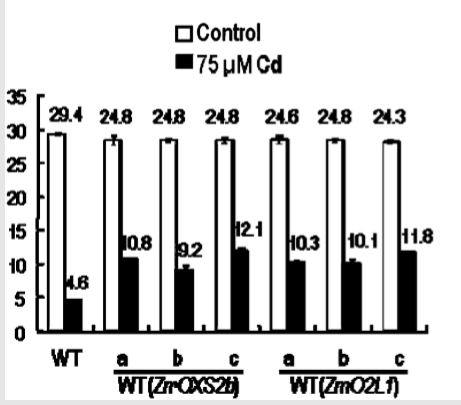SCBG gets a invention patent of Maize OXIDATIVE STRESS 2 homologs and their application potentials
Cadmium (Cd) is one of the most serious heavy metal pollutants. It brings a great threat not only to human health but also to crop production. An excess amount of Cd in soil reduces the efficiency of plant photosynthesis, absorption of water and nutrients, and growth.
Therefore, enhancing the Cd tolerance in crops would be important to increase crop yields when soil is contaminated. Since the Arabidopsis (Arabidopsis thaliana) zinc finger protein OXIDATIVE STRESS2 (AtOXS2) and OXS2-like (AtO2L) family members had been described to play a crucial role in stress tolerance and stress escape, Dr. David W. Ow, Dr. LI Yongqing and the former Ph.D. student HE Lilong from South China Botanical Garden under Chinese Academy of Sciences tried to work out if there any OXS2 homologs from the major crop, maize (Zea mays), were related to Cd tolerance in plants.
In the end, they successfully cloned two OXS2 homolog genes, ZmOXS2b and ZmO2L1 from maize and found that both genes were transiently inducible by Cd treatment and furthermore, when expressed in Arabidopsis, each gene was able to enhance tolerance against cadmium.
These findings provide strong gene candidates that can be used for engineering stress, especially Cd stress, tolerance in crop plants.

Figure 1. Average fresh weight of 11 days old seedlings grown on the medium without or with Cd.
File Download: